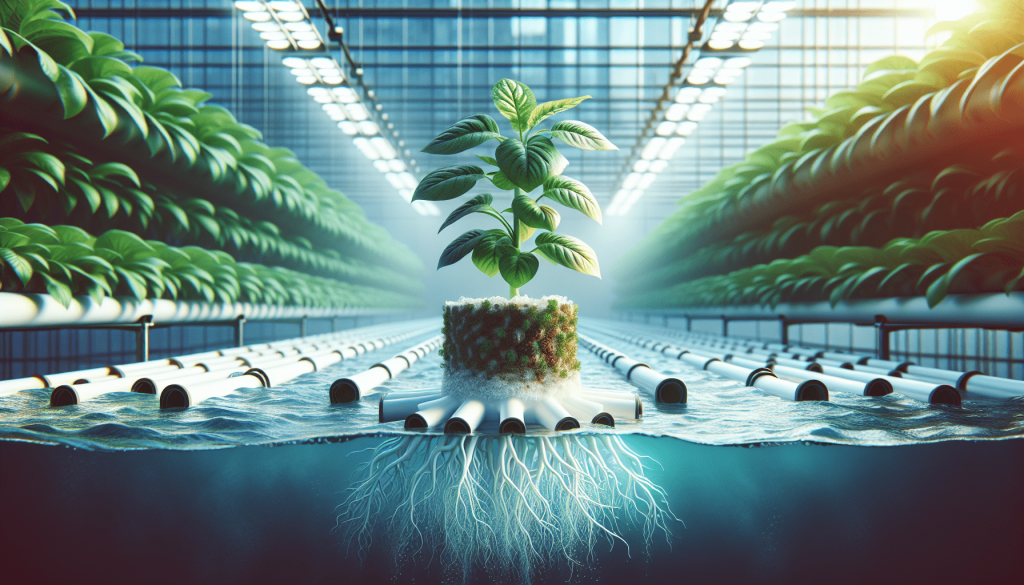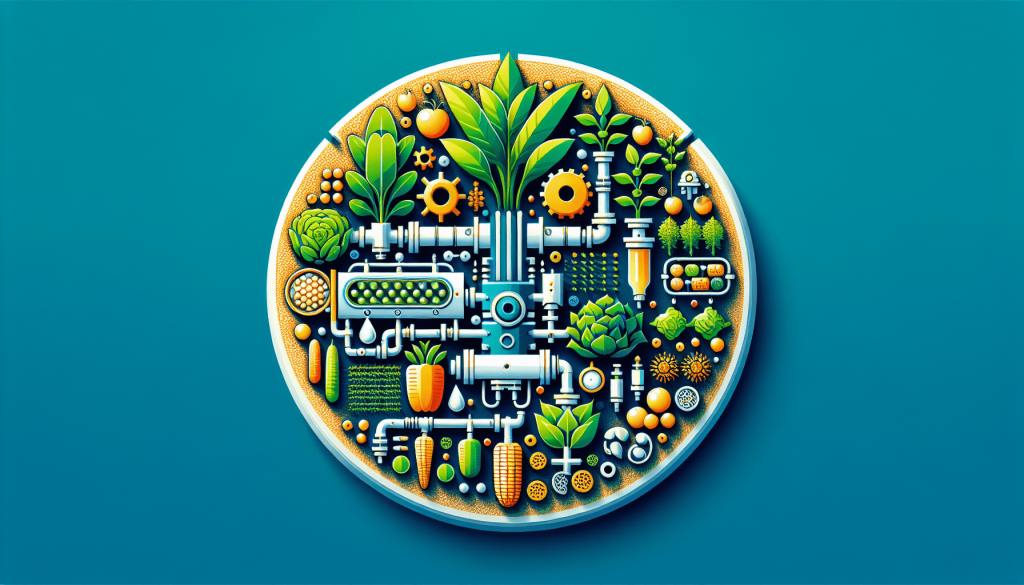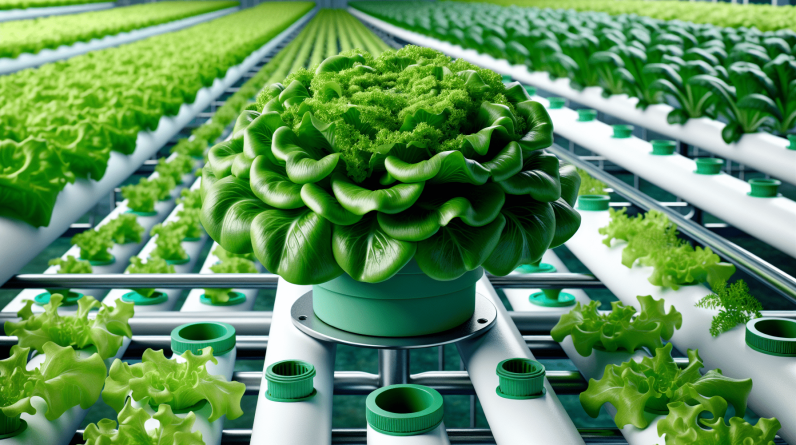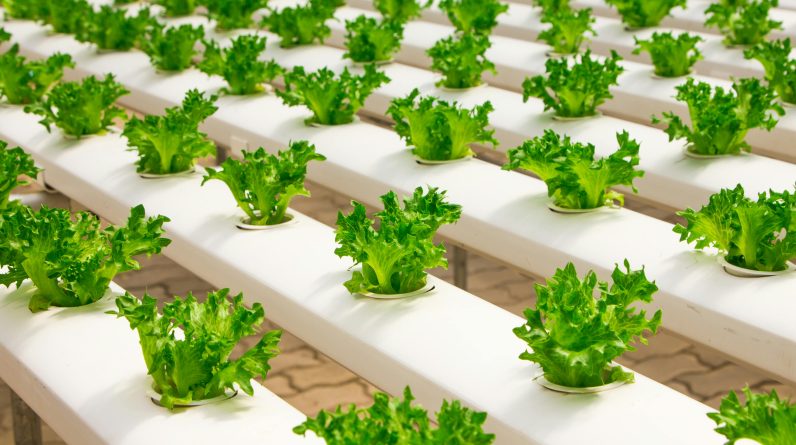
Are you interested in hydroponic farming? If so, then understanding the essential nutrients required for successful cultivation is key. Hydroponic farming is a method of growing plants without the use of soil, and instead, nutrient-rich water solutions are used. This article will explore the crucial nutrients needed for hydroponic farming and the role they play in ensuring healthy and thriving crops. From macronutrients like nitrogen, phosphorus, and potassium to micronutrients like iron, magnesium, and zinc, delve into the world of hydroponic farming and discover the secrets to growing bountiful plants.

Introduction to Hydroponic Farming
Hydroponic farming is a method of growing plants without soil, where nutrients are instead delivered directly to the roots via a nutrient-rich water solution. This innovative technique has gained popularity in recent years due to its numerous benefits and the ability to grow crops in limited spaces or areas where soil quality is poor. By understanding the essential nutrients required for hydroponic farming, you can ensure the success of your plants and maximize yields.
Definition of Hydroponic Farming
In hydroponic farming, plants are grown in a controlled environment using a variety of techniques such as nutrient film technique (NFT), deep water culture (DWC), or ebb and flow systems. Instead of relying on soil for nutrient uptake, the plants’ roots are submerged in a water solution that contains all the necessary elements for their growth. This method allows for precise control over nutrient levels, pH, and other environmental factors, resulting in optimal plant growth and productivity.
Advantages of Hydroponic Farming
One of the key advantages of hydroponic farming is its versatility and potential for year-round crop production. Since this technique is independent of soil, farmers can set up hydroponic systems in any location, regardless of soil quality. Additionally, hydroponic farming typically requires less water than traditional soil-based agriculture, making it a more sustainable option. It also reduces the risk of pests and diseases, as plants are grown in a sterile environment. Furthermore, hydroponics allows for better nutrient absorption and growth, leading to higher yields and faster harvest cycles.
Importance of Essential Nutrients
Just like traditional plants, hydroponic crops require essential nutrients to grow and thrive. These nutrients can be categorized into macronutrients and micronutrients. Macronutrients are needed in larger quantities, while micronutrients are required in trace amounts. By providing the right balance of these nutrients, hydroponic farmers can ensure healthy plant growth, robust root development, and overall vitality.
Macronutrients
Nitrogen
Nitrogen is a vital macronutrient responsible for leaf and stem growth, as well as the production of proteins and chlorophyll. It is essential for plant development and helps plants achieve vibrant, green foliage. In hydroponic systems, nitrogen is typically provided in the form of nitrates or ammonium.
Phosphorus
Phosphorus is crucial for energy transfer, root development, and flower and fruit production. It plays a vital role in the conversion of light energy into chemical energy, aiding in photosynthesis and enhancing overall plant growth. Hydroponic farmers often supplement phosphorus through phosphate salts or phosphoric acid.
Potassium
Potassium is essential for enzyme activation, root health, and overall plant vigor. It regulates water uptake, improves nutrient uptake efficiency, and enhances disease resistance. Hydroponic crops often require higher levels of potassium, which can be provided through potassium nitrate or potassium sulfate.
Micronutrients
Iron
Iron is a micronutrient that is vital for chlorophyll production and overall plant health. It plays a crucial role in photosynthesis and the transport of electrons within the plant. Iron deficiencies can lead to yellowing leaves, stunted growth, and reduced yields. Chelated iron is commonly used to supplement iron levels in hydroponic systems.
Manganese
Manganese is essential for enzyme activation and the metabolism of carbohydrates and nitrogen. It contributes to chlorophyll production, root development, and resistance to diseases. Manganese deficiencies can result in reduced growth and yellowing of leaves. Adding manganese sulfate to the nutrient solution can help address these deficiencies.
Zinc
Zinc is involved in various enzymatic activities and plays a role in hormone synthesis, protein production, and overall plant growth. It is crucial for seed and root development, as well as resistance to stress. Zinc deficiencies can lead to stunted growth and malformed leaves. Zinc sulfate is commonly used to supplement zinc levels in hydroponic systems.
Copper
Copper is essential for the formation of chlorophyll and enzyme activity. It plays a crucial role in photosynthesis, respiration, and the metabolism of carbohydrates and proteins. Copper deficiencies can result in wilting, leaf discoloration, and reduced plant growth. Copper sulfate is typically used to supplement copper levels in hydroponic setups.
Boron
Boron is necessary for cell wall formation, pollen germination, and proper root development. It aids in nutrient uptake, carbohydrate metabolism, and overall plant health. Boron deficiencies can result in weak stems, rotting, and reduced flowering. Boric acid or borax is commonly used to supplement boron levels in hydroponic systems.
Molybdenum
Molybdenum is crucial for nitrogen fixation and the conversion of nitrate into amino acids. It plays a vital role in enzyme activation and overall plant growth. Molybdenum deficiencies can lead to stunted growth, yellowing of leaves, and reduced nitrogen uptake. Sodium molybdate is often used as a source of molybdenum in hydroponic setups.
Calcium and Magnesium
Importance of Calcium and Magnesium
Calcium and magnesium are essential macronutrients that play crucial roles in hydroponic farming. Calcium is responsible for strong cell walls, healthy root development, and overall plant structure. Magnesium is vital for chlorophyll production, enzyme activation, and energy transfer within plants. Both nutrients are essential for optimal nutrient absorption and overall plant health.
Calcium-to-Magnesium Ratio
Maintaining the correct calcium-to-magnesium ratio is crucial for hydroponic crop success. The ideal ratio varies depending on the crop, but a common range is typically around 3:1 to 5:1 (calcium to magnesium). Deviations from this ratio can result in various issues, such as calcium or magnesium deficiencies, which can negatively impact plant growth and productivity. Regular testing of nutrient solutions and adjustments as needed are essential to maintain the appropriate ratio.

Sulfur
Role of Sulfur in Hydroponic Farming
Sulfur is an essential macronutrient that plays multiple roles in plant health. It is involved in the synthesis of proteins, enzymes, and vitamins. Sulfur also contributes to chlorophyll production, root development, and overall plant growth. Adequate sulfur levels promote disease resistance and enhance plant vigor in hydroponic systems.
Sources of Sulfur
Sulfur can be provided to hydroponic crops through sulfuric acid or gypsum. Additionally, certain fertilizers and nutrient solutions contain sulfur as part of their composition. Regular monitoring and adjustment of sulfur levels in the nutrient solution are necessary to ensure optimal plant growth and sulfur utilization.
Silicon
Benefits of Silicon in Hydroponic Farming
Silicon is a beneficial element that can improve the overall resilience and productivity of hydroponic plants. It strengthens cell walls, increasing resistance to pests, diseases, and environmental stressors. Silicon also enhances nutrient uptake efficiency, root development, and overall plant vigor. Incorporating silicon into hydroponic systems can lead to better crop quality and increased yields.
Silica as a Source of Silicon
Silica is a common source of silicon in hydroponic farming. It can be added to the nutrient solution or applied as foliar spray. Silica-based fertilizers or supplements can effectively provide plants with the silicon they need for optimal growth and protection.

pH Balance
Effects of pH on Nutrient Availability
Maintaining the correct pH is vital for nutrient availability and absorption in hydroponic systems. The pH scale measures the acidity or alkalinity of a solution, with values below 7 considered acidic and values above 7 considered alkaline. The ideal pH range for most hydroponic crops is between 5.5 and 6.5, slightly acidic to neutral. Deviations from this range can affect nutrient solubility and plant uptake, leading to deficiencies or toxicities.
Adjusting and Maintaining pH Levels
pH levels can be adjusted using pH up and pH down solutions, which are commercially available. Regular monitoring of the nutrient solution’s pH and making necessary adjustments are key to maintaining optimal nutrient availability and absorption. This ensures that plants can take up the essential nutrients they require for healthy growth and development.
Electrical Conductivity (EC)
Measuring Nutrient Concentration with EC
Electrical Conductivity (EC) is a measure of the total dissolved salts in a nutrient solution. It indicates nutrient concentration and is used to assess the nutrient strength of a solution. EC values are typically expressed in millisiemens per centimeter (mS/cm) or parts per million (ppm). By measuring EC, hydroponic farmers can ensure that their nutrient solution is adequately balanced and providing the necessary elements for healthy plant growth.
Optimal EC Levels
The optimal EC levels for hydroponic crops vary depending on the plant species and growth stage. Generally, young plants require lower EC levels, while mature plants may require higher concentrations. Regular monitoring of EC, combined with adjustments to the nutrient solution, is crucial to maintain optimal nutrient levels and prevent imbalances or deficiencies.

Supplementing Nutrients
Types of Nutrient Supplements
While hydroponic farming provides an efficient way of delivering nutrients to plants, supplementing additional nutrients may be necessary at times. This can occur when certain macronutrients or micronutrients are deficient or imbalanced in the nutrient solution. Commercially available nutrient supplements can be added to the hydroponic system to address specific deficiencies and ensure the plants receive all the necessary nutrients for healthy growth.
Balancing Nutrient Deficiencies
Monitoring plant health and regularly testing the nutrient solution can help identify nutrient deficiencies or imbalances early on. Supplementing the appropriate nutrients as needed enables hydroponic farmers to balance the nutrient composition and provide an optimal environment for plant growth. Proper nutrient supplementation is crucial for maintaining healthy, thriving crops in hydroponic systems.
Conclusion
Understanding the importance of essential nutrients and their role in hydroponic farming is key to achieving successful crop production. By providing the right balance of macronutrients and micronutrients, maintaining proper calcium and magnesium levels, addressing sulfur deficiencies, and considering the benefits of silicon, pH balance, and electrical conductivity, you can ensure optimal plant growth and maximize your hydroponic farming yields. Remember to regularly monitor and adjust the nutrient solution, supplement nutrients as needed, and maintain an optimal growing environment to support the overall health and productivity of your hydroponic crops. With the right knowledge and diligent care, you can enjoy the benefits and rewards of hydroponic farming.








